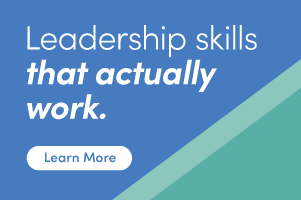My wife and I go for a walk most evenings, and the neighborhood Starbucks is a frequent stop. When I want to order books, Amazon is my first, and usually only, choice. For air travel around the western U.S., Southwest has been my favorite airline for 30 years.
In our personal lives, we are all addicted to certain behaviors that we do routinely without conscious thought. In fact, a 2007 Duke study concluded that about half of our daily decisions are “wired” into our brains after repetition and positive rewards.
So, how do great brands create such intensely loyal relationships? The answer may surprise you. If you want customers to be addicted to your brand, your business has to be addicted to its customers.
In my research over the past 15 years, I’ve identified five “habits”—or routine organization behaviors—that distinguish top-performing companies.
Habit 1: Listen
Effective customer listening requires two “ears.” The strategic ear is about doing the research to understand what drives your customers’ loyalty. The other ear is tactical—getting feedback on customer experiences so corrective action can be taken. Surveys are a common source of feedback, but there are many others, including social media, digital behavior and speech.
At Best Western, leaders invested in a listening program that incorporated both surveys and social media. Alerting hotel managers to customer complaints helped Best Western improve overall loyalty, nearing industry-leader Marriott.
Habit 2: Think
Most companies are stuck in a rut, making the same decisions because “that’s the way we’ve always done things around here.” Great companies use data and analytics to augment human decision-making skills and find optimal solutions.
At Macy’s, leadership changes were required to break through traditional product-centric decisions. By looking at data from loyalty programs, credit cards and other sources, Macy’s was able create a more complete understanding of the products, pricing and experiences that move their most loyal customers—a key source of revenue and profit for the retailer.
Habit 3: Empower
As a customer, don’t you hate it when a service rep can’t deal with even minor exceptions without management approval? Great companies empower their employees with the authority, resources and motivation to take care of customers.
On a trip to Orlando a few years ago, I arrived late to a Hilton hotel and ordered some food at the restaurant just before closing. I was starting to wonder if my order had been forgotten when the server came back, apologized for the delay and offered me a free drink. It impressed me that my server was empathetic enough to realize that Hilton’s service was not quite up to par—and he didn’t have to get permission to resolve it.
Habit 4: Create
Despite widespread talk about “innovation,” the status quo reigns supreme because it’s easier to keep building and selling the same products and services. Meanwhile, other companies unfettered by history are only too happy to create something different to entice customers.
At Intuit, one of the company’s core values is “Innovate and Improve”—they are encouraged to take risks, make fast changes and learn from both successes and failures. Despite offering what many would consider to be boring software to prepare taxes, manage finances and so on, from 2008 to 2012, Intuit grew 10 percent compounded per year and doubled its stock price, while the S&P 500 stock index increased only 20 percent.
Habit 5: Delight
To create an emotional bond, companies can’t be satisfied with just, well, satisfying their customers. Satisfied customers will readily switch to another option, so top companies look for creative ways to create a memorable experience.
Doubletree delights by offering free cookies upon check-in. Southwest delights by letting “bags fly free.” And on a personal note, one visit to a Wells Fargo branch with my mother turned delightful when the banker greeted us warmly, asked us to sit down and then personally took care of three different transactions instead of routing us around the branch.
You Get What You Measure and Reward
At Amazon.com, Jeff Bezos is famous for leaving an empty chair at the conference table and letting attendees know it’s occupied by the “the most important person in the room”—the customer. He backs up that symbolism with an array of metrics, 80 percent of which relate to what customers care about.
Make sure that your measurement and rewards encourage employees to listen, think, empower, create and delight. These habits will leave your customers addicted to your brand.




